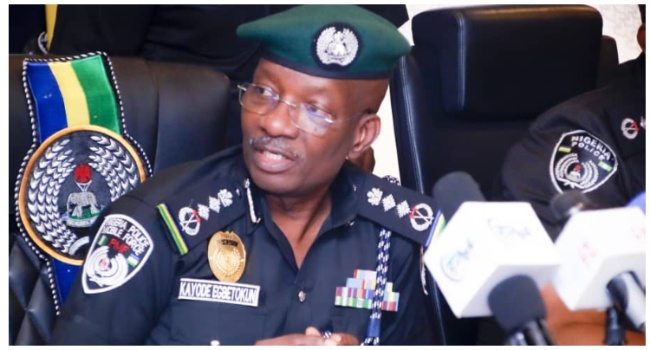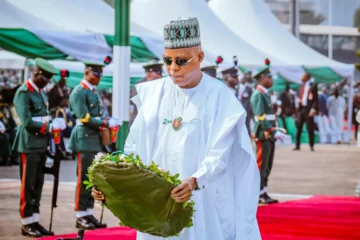Police operating in difficult environment – IGP Egbetokun

IGP Egbetokun
The Inspector General of Police, Kayode Egbetokun, has said the Police are operating in a very difficult environment with inadequate manpower, noting that he met a battered force.
He said, “The United Nations Police ratio of 1 to 400 is not attainable in Nigeria as of today. The ratio in Nigeria is one to 1,000, which suggests that we have to double the manpower.
“We have 1,537 police divisional headquarters across 774 local government areas. But getting operational vehicles for the divisions is difficult. Each of these divisions requires at least four functional patrol vehicles. But we have divisions which don’t have any patrol vehicles as of today.
“Training in the police is still inadequate. The welfare of personnel is nothing to write home about. Funding is critical to achieving the mandate of the Nigerian Police. Unfortunately, the citizens are not interested in our excuses for under-performance. They want us to serve them. We are ready to serve them. We need your cooperation. We need funding. We need more manpower.
“In spite of these inadequacies, the police have been doing so well. We have been doing our best to protect lives and property across the country. No agency can perform beyond the limit of resources available to it.
“In the last five months, we have made a lot of arrests. We have made a lot of recovery of illicit weapons. Some of these suspects are undergoing prosecution, as we speak. But no amount of arrest that we make will solve our security problem.
“It is not possible to arrest all the criminals and recover all the weapons. But within the environment we function, the police have done so well and we are still doing so much.
“We appeal that Nigerians should please support the police. We are implementing community policing strategies in all our communities. We want to take into consideration the peculiarities of each community in the strategies that we employ in policing a particular community.
“Recently, I announced the establishment of a special intervention squad, a standby unit of at least 1,000 men in each of the states. These men will be specially trained. They will be specially equipped and remunerated and ready for deployment at shortest notice to any area of the country where there are crises.
“This way we intend to join the military in fighting terrorism in the North- East; armed banditry in the North-West and North-Central; kidnapping, and armed robbery across the country and ensure that we reduce violent crime in our country to the barest minimum.”
Speaking earlier during his opening remark, Speaker Tajudeen Abbas said that for the 10th House, the sectoral debate marked a significant milestone in the implementation of its legislative agenda.
“The sectoral briefs will provide us with an opportunity to scrutinize the policies, activities and plans of each MDA. It will also allow the House and members to understand better the challenges facing government agencies, their programmes and areas for legislative interventions,” he disclosed.
He said further: “Let me emphasize from the onset that appearance in person for all invited heads of MDAs are required throughout this sectoral briefing. As such, the House shall not accept proxy representation for any reason whatsoever. Notices are sent well in advance to forestall any excuses.’’











